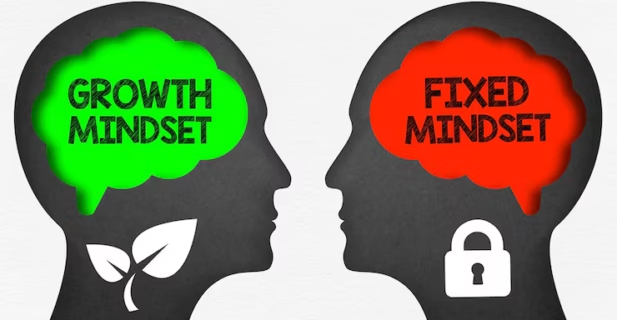God has always worked with flawed people. From David’s contrite heart to Moses’ reluctant leadership, from Abraham’s faithful obedience to Peter’s impulsive loyalty—perfection was never the requirement. But a willingness to follow, to grow, and to be changed, that is something God can work with.
So what is it that makes one person “fit” for eternal life, and another not? Is it simply belief? Is it good behavior? Or is there something deeper happening in the minds and hearts of those who respond to God’s call?
The Bible is full of examples of individuals who made mistakes, yet were commended for their faith. David sinned greatly, but repented deeply. Moses wrestled with insecurity and even disobeyed God, yet was called faithful in all God’s house. Abraham doubted at times, yet believed enough to act on God’s promises: “Just as Abraham “believed God, and it was accounted to him for righteousness” (Galatians 3:6). The common thread? Each had a heart that was willing to yield.
Romans 8:7 tells us, “The carnal mind (one without God’s Holy Spirit) is enmity against God; for it is not subject to the law of God, nor indeed can be.” A rebellious heart is not merely flawed; it is resistant to God. Eternal life is not simply about existing forever—it is about being aligned with God’s mind and nature. A mind that actively resists Him is incompatible with that future.
But a flawed mind that wants to grow, that wants to live God’s way of life, is something God can shape. He is in the process of transforming minds—not just saving souls from destruction: “Do not be conformed to this world, but be transformed by the renewing of your mind” (Romans 12:2).
This isn’t just about personal improvement; it’s about becoming something new, something eternal. We are to bring “every thought into captivity to the obedience of Christ” (2 Corinthians 10:5). That level of mental discipline and surrender is not just about this life—it’s shaping the kind of mind that will thrive in the world to come, in the eternal Kingdom of God.
God is not looking for a moment of belief; He is looking for an ongoing transformation. If God could simply impart His nature and character at the moment of a resurrection, why does this life matter? Why allow hardship, temptation, trials, and growth? Because we are in training.
Jesus was perfect, but even “though He was a son, yet He learned obedience by the things which He suffered” (Hebrews 5:8). That wasn’t because He lacked anything, but because His role as our High Priest required a shared experience with us: “For we do not have a High Priest who cannot sympathize with our weaknesses, but was in all points tempted as we are, yet without sin” ( (Hebrews 4:15)
God is working with His people creating a transformed mind to be “kings and priests” to reign on the earth with Jesus Christ at His return: “. . . For You (Christ) were slain, And have redeemed us to God by Your blood Out of every tribe and tongue and people and nation, 10 And have made us kings and priests to our God; And we shall reign on the earth” (Revelation 5:9–10).
Daniel 7:27 confirms that “the saints of the Most High shall receive the kingdom, and possess the kingdom forever.” And kings and priests aren’t passive roles. They require wisdom, judgment, empathy, and righteousness. Followers of Christ are to be learning those things now.
There must be something pliable in the human mind—some aspect of it that, while still fleshly and flawed, is willing to be shaped by God. That willingness is the key difference. God will not give eternal life to a mind that resists Him. But He is preparing to give it to those who, even in weakness, seek to become like Him. And the remarkable thing is this: once that mind has been fully transformed and glorified, it will be immutable in righteousness, sealed in unity with God. That is the goal.
Becoming Eternal isn’t God just saving us. He’s shaping us. He’s not just offering life forever—He’s preparing minds that won’t want to rebel, that won’t desire destruction, that will fully embrace His way of thinking and acting.
The question isn’t just, “Do I want eternal life?” The real question is: Am I becoming the kind of person God can entrust with it?
Ryan Welsh


